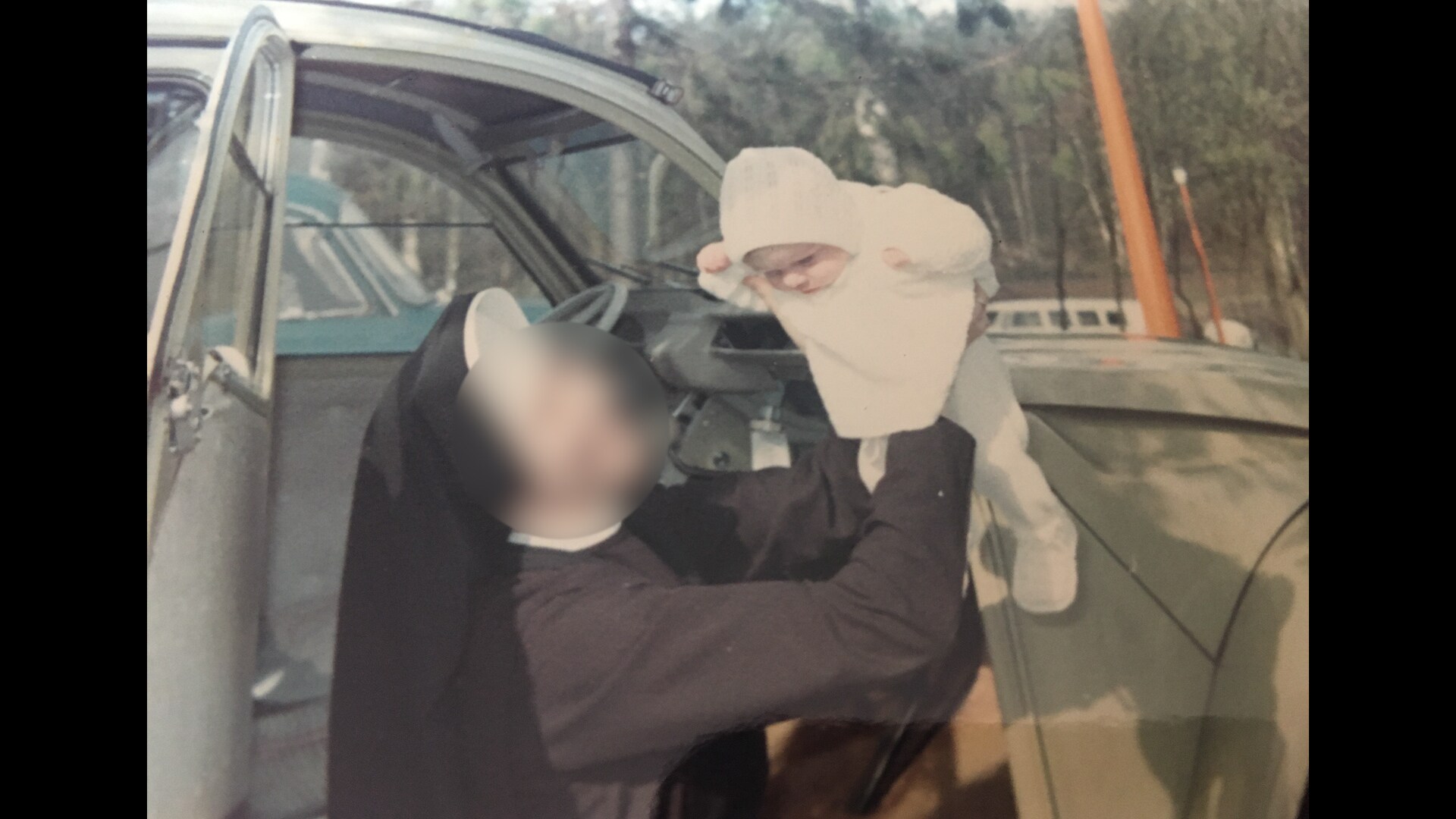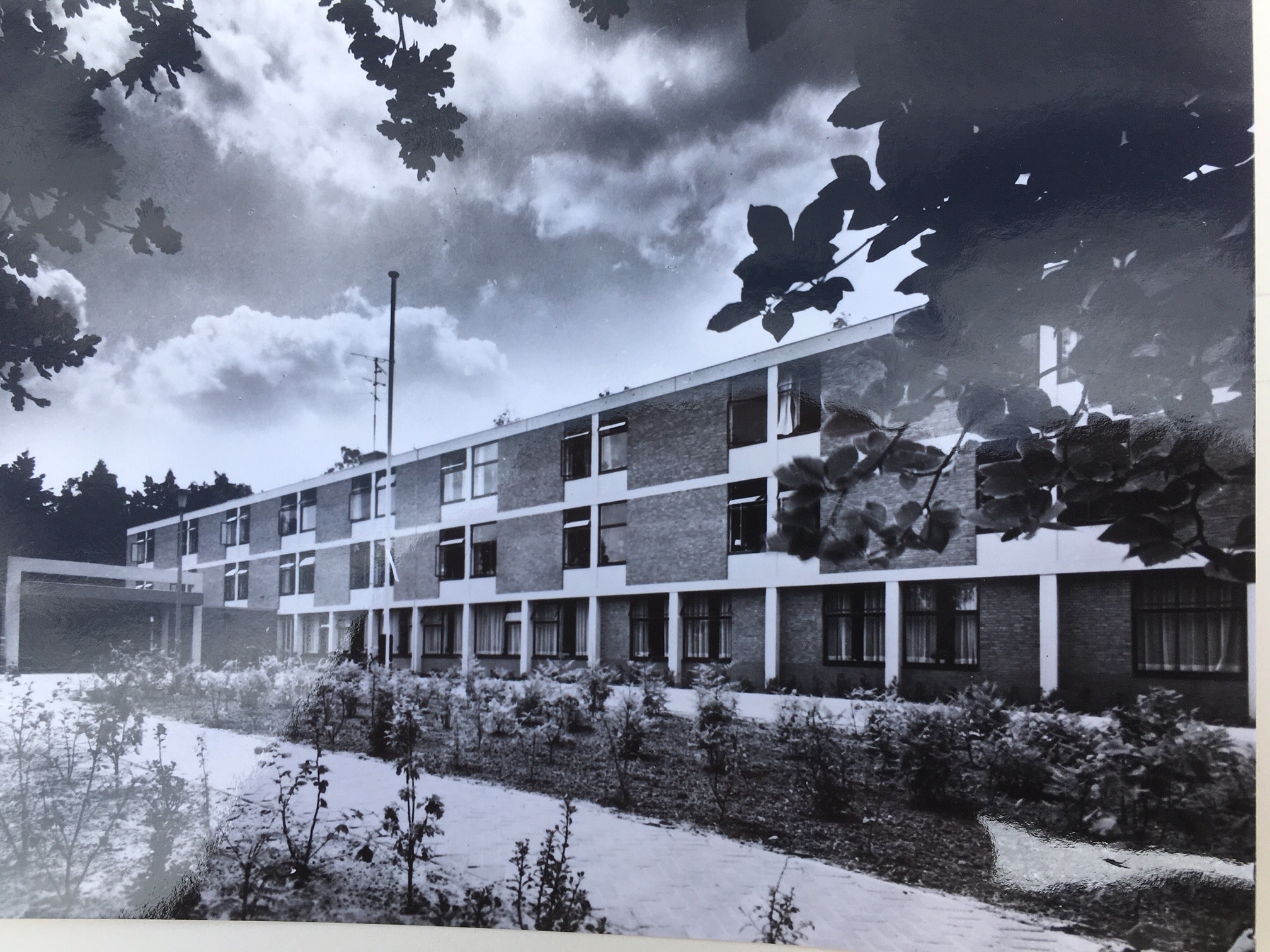Back to the nuns of the Paula Foundation: 'Even without us, unmarried motherhood was traumatic'
Former nuns Sister Chantal (92) and Sister Angeli (81) worked at the Paulastichting in Oosterbeek, a home for unmarried mothers, in the late 1960s. Many of these mothers gave up their children. Like Ellen van Ree (69), who carried this trauma with her for the rest of her life. Fifty years later, she visits the nuns. How do they look back on what happened in their home?
This article was written byJenda Terpstra and Petra Vissers Published on June 13, 2020, 1:00 AM
Save
To share
Ellen van Ree was sixteen years old and a "child of her time, with trendy clothes and spiky blond hair" when she became pregnant in 1967. Her parents refused to hear of it and sent her to the Paula Foundation in Oosterbeek. There, Ellen was housed, along with about 29 other unmarried girls, waiting to give birth. Half of them gave up their child for adoption. Ellen's parents also refused to let her keep it.
Ellen remembers the long corridors and the rustling habits of the nuns. One of those habits belonged to Sister Angeli, who was present at Ellen's birth. Another belonged to Sister Chantal, the director of the Paula Foundation. More than fifty years later, Ellen visits the two sisters with questions she still has. Both sisters have since left the nuns' service and share a home in Limburg. At Ellen's request, they are happy to travel back in time.
Surrogate mothers and foster children
The adoption law seems to have created its own dynamic in the Netherlands, according to research by Trouw and Omroep Gelderland. One in which unmarried women are pressured to give up their babies, or even, decades later, say they were forced to give up their child.
In a series of articles, available at trouw.nl/adoptie , we investigate what went wrong, how it could have gone so wrong, and the impact it has had on people's lives. The interviews and videos from Omroep Gelderland can be viewed here.
'Nobody forced distance'
The controversy over relinquishment has also reached Sister Angeli and Sister Chantal's home. But they remember the situation differently than some mothers do now.
Sister Angeli: "Girls often didn't know what they would do when they came to us. They discussed the possibilities and limitations with a psychologist or social worker. No one was forced to give up their child. But sometimes their personal circumstances forced a girl to do so."
Sister Chantal: "At the time, the Paula Foundation was considered very modern. It was the newest home for unmarried mothers in the Netherlands, and one of the largest. Ministers visited with foreign delegations to demonstrate how we had organized maternal care."
Sister Angeli: "Some of the girls who came to us had suffered terribly. Like you, Ellen. Your parents didn't support it."

One of the nuns at the Paula Foundation with one of the many young children who entered the adoption circuit through the home.Source Private photo album.
Parents had a great influence
Parents often interfered in the situation, Sister Chantal adds. "As the headmistress, they would come to me. But I always said: here, the girl is in charge." Sister Angeli adds: "Parents had a great influence, even if a girl was of legal age. Some parents saw unwed motherhood as a great shame."
Ellen nods. "My family really let me down," she says. Her parents wouldn't help. Her sisters, who already had children, weren't giving a damn either. "I was stuck. How was I supposed to care for a child if my family or the father of the child didn't want to know? I had no home, no income, and no future prospects."
Rusk with mice
Ellen gave birth to a son on New Year's Day. A washcloth was placed over her eyes to keep her from seeing him. "I think I wanted that myself. I didn't want to look. Then I became attached."
Other birth mothers also talk about that washcloth. Sister Angeli: "The professionals thought it was better if a birth mother didn't see the child. There were washcloths nearby to wipe away perspiration. But with us, mothers could decide for themselves."
Ellen has another question: "Why did I get rusk with aniseed after the birth? That rusk felt like a trophy. There was nothing to celebrate. I was going to give it up. The birth was the height of sadness." Nurse Angeli can't remember. "Maybe you were hungry and there was nothing else available in the ward?"

The building of the Paula Foundation.Source Private photo album.
You can listen to the podcast Trouw produced on this topic using the player below, which also features Sister Angeli. You can also find it on familiar channels like iTunes , Spotify , or Google Podcasts.
Nuns to blame
In stories about abandonment, sisters are often blamed, says Sister Chantal. "But we actually had nothing to do with the decision to abandon. But then again, someone had to do it. You're not so quick to blame your father and mother."
Sister Angeli: "Unwed motherhood was often a traumatic experience, even without us. I read somewhere that we were described as 'cold and businesslike.' Well, I thought that applied more to some families who turned their daughters away."
The sisters don't think it's the right question to ask who is "guilty" of the practice that still affects so many women and their children. Sister Angeli: "Everyone makes mistakes, including us. Seen through the lens of the times, things didn't go well back then. But at that time, within that context, we tried to offer help to people who needed it. We did that to the best of our ability."
Many girls came home from a crisis situation. I don't think there's much point in blaming anyone now. The reasons for a girl's relinquishment varied depending on the situation.
'Worked out of love'
Having a child is one of the most important experiences in a person's life, Sister Angeli adds. "We tried to support mothers in their choices and grief. I did this work with great love. If I had to do this work again tomorrow, I would do it the same way."
Sister Chantal: “Out of love for people.”
Sister Angeli: “No one was out to bully mothers. Absolutely not.”
Ellen: "Looking back, we're all paying the price. It's devalued my life."
Ellen went from anger to frustration, from regret to uncertainty. She's reconnected with her son, Gabriel. Now, more than fifty years later, she says, "It is what it is. Nothing more, nothing less."